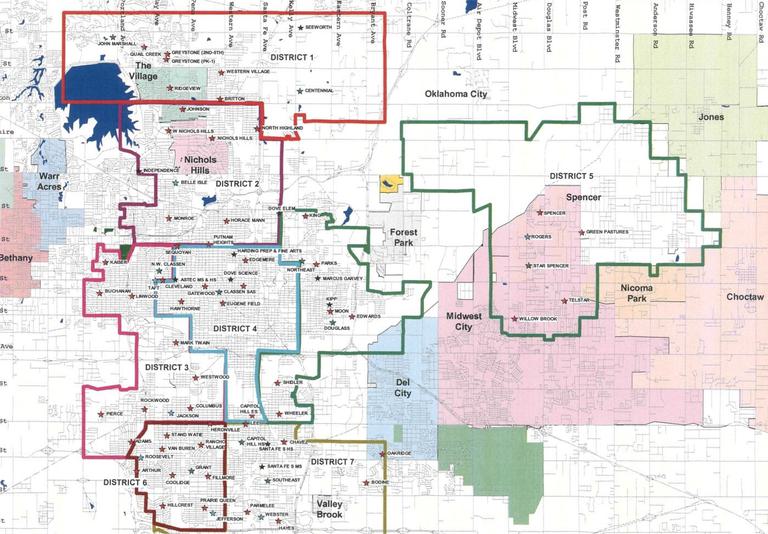
Education
School boundary disputes are so 20th century
Trent England | February 21, 2019
Oklahoma City is closing schools and moving boundary lines. Now Deer Creek is shifting lines as well. These changes mean that kids who go to one school right now may wind up being assigned to a different school in August.
These changes have nothing—zero—to do with what is best for each child. The only determining factor is where the child happens to live.
Some things in life work this way. Utilities, for example, are often based on geography. If you have piped-in natural gas, it takes a lot of buried pipes and other hardware to make it all work. The result is that most people have just one choice based on where you live.
Telephones used to be that way, but in the era of cell phones, we suddenly have lots of choices. It would make no sense to assign a particular cell phone carrier to a particular neighborhood.
Education is a little like telephone service. Before most people had cars, students could only attend a school within walking distance. Even with improved transportation, in rural areas and small towns, there is often just one or two schools nearby.
Of course, this is not true in Oklahoma City and Deer Creek. Those families, like most Oklahomans today, live near all kinds of schools. And rather than just serving a geographic area, some of these schools focus on serving particular groups of students.
Schools like Cristo Rey OKC, The Academy of Classical Christian Studies, Trinity School, and Positive Tomorrows are glimmers of a better future for education. Whether they are teaching Latin, providing services to a homeless family, or catering a curriculum to students with dyslexia, these schools transcend geography to focus on students.
Debates over where to draw lines on a map are vestiges of the past and reminders of how far we have left to go.

Trent England
David and Ann Brown Distinguished Fellow
Trent England is the David and Ann Brown Distinguished Fellow at the Oklahoma Council of Public Affairs, where he previously served as executive vice president. He is also the founder and executive director of Save Our States, which educates Americans about the importance of the Electoral College. England is a producer of the feature-length documentary “Safeguard: An Electoral College Story.” He has appeared three times on Fox & Friends and is a frequent guest on media programs from coast to coast. He is the author of Why We Must Defend the Electoral College and a contributor to The Heritage Guide to the Constitution and One Nation Under Arrest: How Crazy Laws, Rogue Prosecutors, and Activist Judges Threaten Your Liberty. His writing has also appeared in the Wall Street Journal, USA Today, Washington Times, Hillsdale College's Imprimis speech digest, and other publications. Trent formerly hosted morning drive-time radio in Oklahoma City and has filled for various radio hosts including Ben Shapiro. A former legal policy analyst at The Heritage Foundation, he holds a law degree from The George Mason University School of Law and a bachelor of arts in government from Claremont McKenna College.